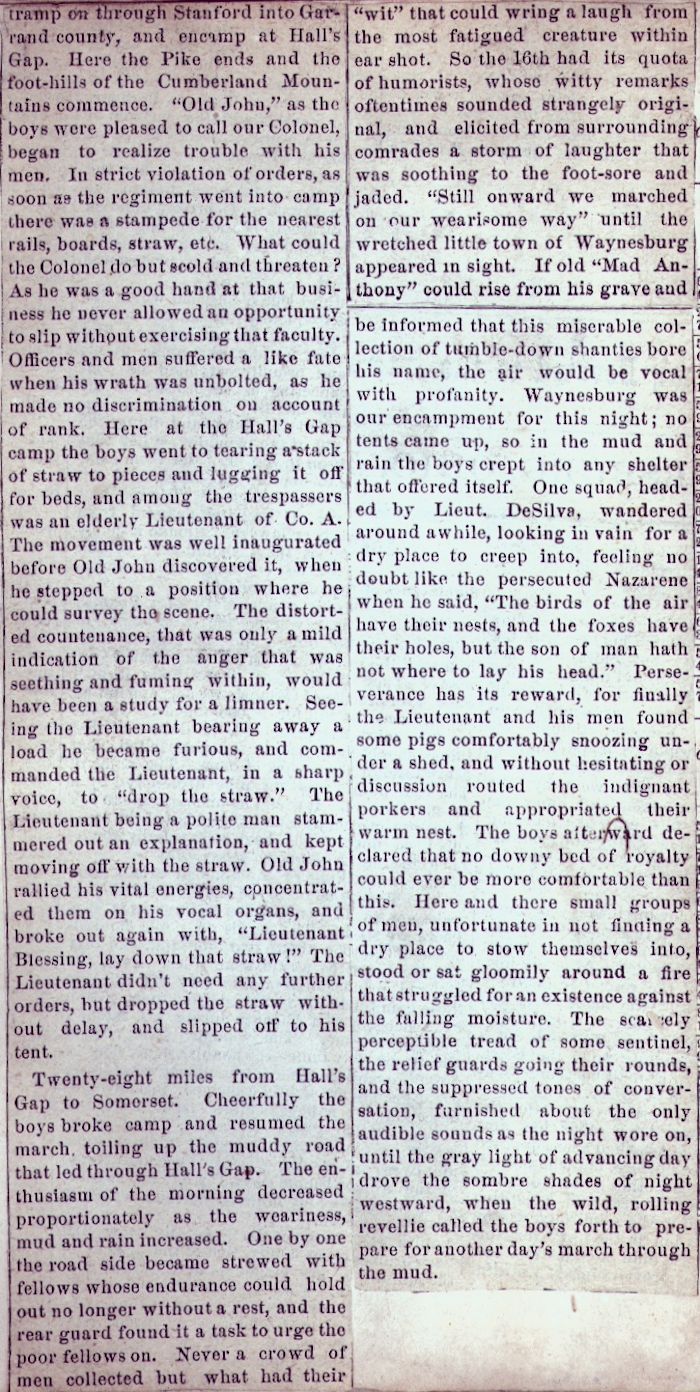| Camp & Field Page 7 | Camp & Field Index Page | 16th OVI Home Page | Camp & Field Page 9 |
The Camp & FieldArticles by Theodore Wolbach |
 Cpl. Theodore D. Wolbach |
The following image is taken from a book titled "Mortality and Statistics of the Census of 1850" in which it is believed retired Captain Rezin H. Vorhes, Company H, pasted over the pages a series of articles written by Cpl. Theodore D. Wolbach, Company E, titled "Camp and Field" and published, by chapter, in the Holmes County (Ohio) Republican newspaper from February 24, 1881 to August 17, 1882. The articles tell the story, in great detail and color, of the 16th OVI, from the inception of the 3-year regiment in October, 1861, through all its camps, battles and marches until it was disbanded on October 31, 1864. The articles pasted in the Vorhes book cover the first 35 chapters, published through October 20, 1881. All the remaining chapters were recently found in a Holmes County library by researcher Rob Garber who obtained copies, performed the transcriptions and provided to this website and which are also presented here, thus providing the complete work by Theodore Wolbach.
Throughout these articles click on the underlined white text for additional details.
The webauthor thanks 16th Ohio descendant Rob Garber for his excellent research on the Camp And Field articles and for performing the tedious digital transcription of those articles found on each page. The transcriptions were made to reflect the original articles verbatim, misspellings and all. Rob is the 3rd great nephew of Capt. William Buchanan, Company F, 16th Ohio, who served in the 90-day regiment as a private, re-enlisting in the three year regiment, and eventually making the rank of Captain of Company F. Thanks Rob!
Page 8 - Chapter 5 - January, 1862
 |
tramp on through Stanford into Garrand county, and encamp at Hall's Gap. Here the Pike ends and the foot-hills of the Cumberland Mountains commence. Twenty-eight miles from Hall's Gap to Somerset. Cheerfully the boys broke camp and resumed the march, toiling up the muddy road that led through Hall's Gap. The enthusiasm of the morning decreased proportionately as the weariness, mud and rain increased. One by one the road side became strewed with fellows whose endurance could hold out no longer without a rest, and the rear guard found it a task to urge the poor fellows on. Never a crowd of men collected but what had their |
|
| Camp & Field Page 7 | Camp & Field Index Page | 16th OVI Home Page | Camp & Field Page 9 |